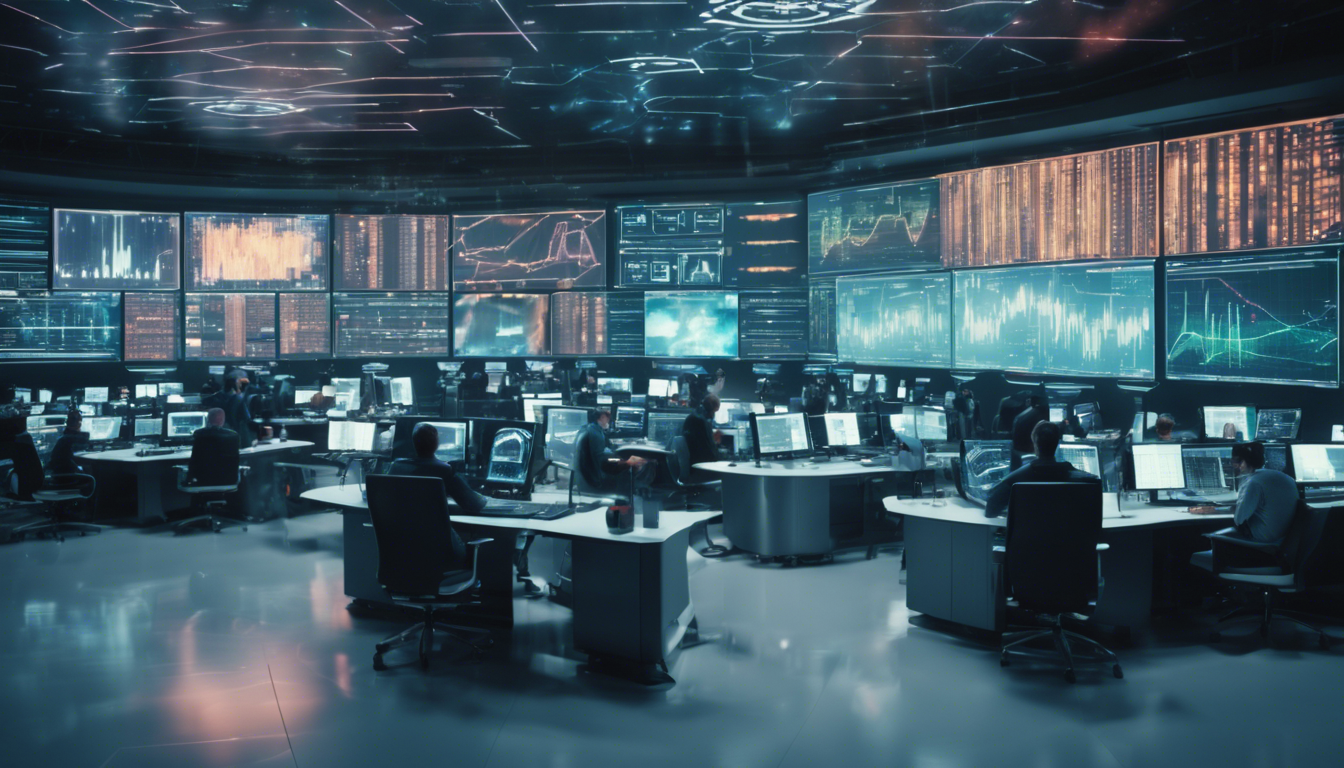Artificial Intelligence (AI) is no longer just a buzzword in the tech community; it has become a pivotal tool in various sectors, significantly transforming stock exchanges globally. As we delve into the complexities of AI in these financial hubs, it’s essential to understand how they’ve become fertile grounds for AI applications, offering a glimpse into a data-driven, algorithmically determined future of finance.
Historically, stock exchanges have relied on human insight for trading and decision-making processes. However, the advent of AI has changed the landscape, allowing for faster, more accurate predictions and decisions. From algorithmic trading to risk management and compliance, AI’s contributions are vast and multifaceted. This integration of technology opens up new pathways for investors and regulators alike, ensuring more robust mechanisms against financial anomalies.
One of the earliest adopters of AI technologies in stock exchanges was the NASDAQ, which implemented machine learning systems to monitor trading activities and identify irregularities. This move not only improved the accuracy of anomaly detection but also set a precedent for other stock exchanges to follow. Today, AI systems are employed to analyze large volumes of data to predict stock price movements and market trends, a process that was unimaginably tedious and error-prone when done by humans.
In New York, the NYSE has been at the forefront of integrating AI into daily operations, using AI to optimize trading flows and enhance liquidity. This has not only increased transaction speeds but also reduced costs for market participants. The exchange further uses AI to simulate various market conditions, preparing for potential crises by understanding possible outcomes and reactions.
The shift towards AI is fueled by the necessity to handle vast amounts of data generated by modern trading activities. With global markets becoming increasingly interconnected, the role of AI in managing cross-border trades and multinational investment strategies is becoming crucial. Experts like Dr. Helen Briggs, a financial technology analyst, predict that ‘AI will soon be indispensable in handling international trade complexities, necessitating continuous advancements in AI technology for sustained market success.’
Alongside operational efficiencies, AI is also reshaping customer service within stock exchanges. AI-powered chatbots and automated systems provide real-time assistance to traders, offering insights and resolving queries that would traditionally require human intervention. This not only improves trader satisfaction but also streamlines the trading process.
Critics, however, argue that the rapid integration of AI could lead to over-reliance on technology, potentially ignoring human intuition and experience, which have been central to trading. Furthermore, the opacity of AI algorithms poses a significant challenge, raising concerns about accountability in AI-driven decisions. Addressing these concerns, regulatory bodies are beginning to draft guidelines to ensure transparency and fairness in AI implementations in financial markets.
Investments in AI by stock exchanges have seen a significant uptick in recent years. Major financial hubs in Asia and Europe are heavily investing in AI research and development, aiming to become global leaders in AI-driven trading. According to a report by MarketsandMarkets, the AI in trading market size is expected to grow from $1.5 billion in 2020 to $4.5 billion by 2025, evidencing the increasing trust and reliance on AI technologies in stock markets.
As for future trends, AI is expected to move beyond simple automation and prediction. Developments in AI capabilities like natural language processing and cognitive computing could redefine how information is processed and decisions are made in stock exchanges. The potential for AI to understand and interpret news events and economic indicators in real-time could drastically enhance market responsiveness.
In conclusion, the integration of AI into stock exchanges represents a paradigm shift towards more efficient, secure, and intuitive financial markets. While challenges remain, particularly in terms of regulation and reliance, the pathway forward is being paved with innovative solutions that promise to reshape the global economic landscape. As AI continues to evolve, so too will its impact on how stock exchanges operate, making a profound impression on global market dynamics.
You may also like
Fiscal maneuver 2025 : Impacts on Household Savings
The 2025 budget plan proposed by the Italian government is poised to bring significant changes with potential impacts on the savings of Italian families. This article explores the details of the fiscal maneuvers, the expected economic shifts, and the perspectives from experts and policymakers.
The Rise of Real Estate Sales in Small Italian Towns
In recent years, there has been a significant increase in real estate transactions within Italy’s smaller towns. This trend is fueled by a growing interest in the unique lifestyle these locations offer, coupled with a surge in remote working opportunities. The article delves into the factors contributing to this phenomenon and identifies some of the most desirable areas for potential buyers.
The New House Bonus Rules: Tax Deductions and Eligibility
The new house bonus rules introduce significant changes to tax deductions for home renovations and energy efficiency improvements. This article delves into the specifics of these regulations, eligibility criteria, and benefits, offering a thorough analysis for homeowners.
How 100% Mortgages work for Young People ?
The 100% mortgage scheme aimed at young individuals has become a significant avenue for aspiring homeowners. This guide explores how these mortgages function, the necessary guarantees, and the eligibility criteria for individuals seeking such financial assistance.
